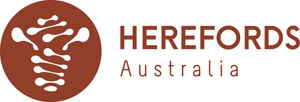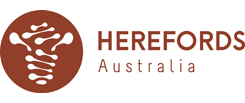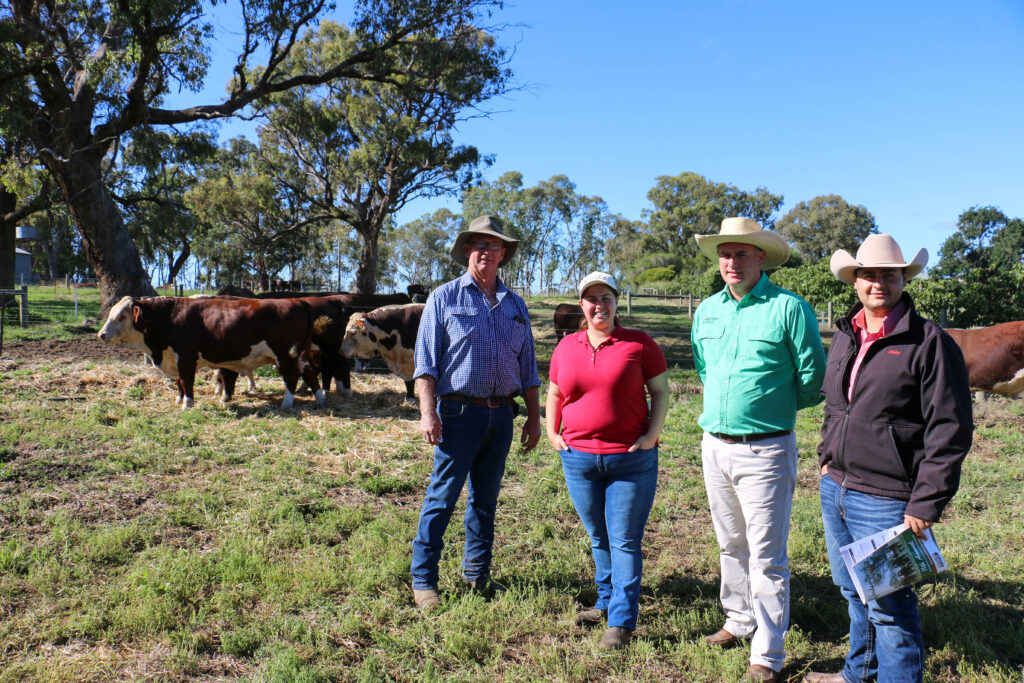Alicia Trovatello, immediate past president of Herefords Australia Youth, has been appointed as a 2024 Meat and Livestock Ambassador for the Red Meat Industry Program.
Participants are trained in community engagement and building trust with consumers to build a national network of industry champions who can create awareness and understanding of sustainable and best practice red meat production and consumption.
Alicia, a co-principal of Glendan Park, Kyneton, Victoria, is also a participant of the Kilcoy Global Foods graduate program, working with the company’s Continuous Improvement department.
It is a two-year program designed to develop both technical and behavioural capabilities and prepare young people as future leaders of the company. The program consists of four rotations with the opportunity to work across multiple business units in sales, marketing, livestock, planning and procurement, food solutions and finance.
Kilcoy has committed to operating at a net zero carbon status to reduce the environmental, social and economic impacts of their business practices on the planet. The company’s action plan included 100 per cent self-electricity generation, finding ways to reach zero waste, and investment in technology systems to streamline processes.
In December Kilcoy officially received Carbon Neutral certification from Climate Active, one of the most rigorous carbon neutral certifications in the world.
Alicia works at the Kyneton plant helping to optimise overall efficiency.
“Kilcoy Global Foods is the first carbon neutral red meat processor in Australia – our Kilcoy plant and Sunshine Coast head office are at the forefront of some major energy projects – there has been a big environmental push,” Alicia said.
“Where I work at the Kyneton plant, we are taking those steps to becoming carbon neutral very soon. These include solar panel installations and water saving projects.”
“Cattle producers are doing the right things and carbon neutral beef is something the processors could capitalise on with opportunities for producers to capture a premium.”
CSIRO and Meat and Livestock Australia research showed the Australian red meat and livestock industry has reduced its net greenhouse gas emissions by 65 per cent from the 2005 baseline.
Alicia said this was a fantastic achievement for the whole cattle industry.
“While it is important to install solar panels and plant trees to deliver environmental benefits, a really big focus is livestock productivity,” she said.
“We need fertile cattle able to get in calf at the first joining and produce more weight or kilograms with less feed. The Hereford cow does that naturally in all climates.
“We favour those cows that put the weight into their calves to lift our cow-calf ratio at weaning.
“We are all about longevity too – Herefords have the doing ability and structure to survive through a drought and raise a calf every year. “
Alicia pointed to a focus on fertility and grazing management within Glendan Park’s business model to achieve sustainability.
“We are strongly focused on rotational grazing and aim to maintain 100 per cent ground cover throughout the year. Ground cover is key for soil health and protecting against erosion.
“The cattle are rotated around pastures according to the growth stage of the plant. We have a stocking rate for each paddock taking into account the environment from a holistic approach.”
Soil health is critical at Glendan Park with annual soil testing on the hay producing paddocks and sub clovers used to fixate nitrogen in the soil.
The family uses data capture for monitoring and evaluating progress, with all calves weighed from birth to 600 days.
“We don’t have a stringent feed program for our bulls, and they are predominantly grass fed up until around sale time. Their 400-day weights are all off grass and the trend suggests they are putting on the kilograms with less feed.
“Both stud and commercial cattle are yard weaned for a week each December on high quality hay, and then finished on grass. Getting that high quality roughage into the weaners is important to get the rumen operating.”
The commercial steers and heifers are sold in the Kyneton weaner sale each January to mainly South Gippsland clients finishing for grass fed programs.
“As an industry we are doing so well and if we do keep on focusing on livestock productivity, we can be carbon neutral as an industry by 2030.
At the 2024 Beef Week field days this year, three generations of the family were present to engage with visitors.
“Beef Week provides a great opportunity for us to talk to our clients about their program and bull requirements for the year. It gives an opportunity for potential clients to look at our female herd, with all the dams of our sale bulls and young weaner heifers on display,” Alicia said.
“We also travel to see other studs showcase their cattle and what they have to offer.”
To watch a video on innovative projects to achieve sustainability at Kilcoy Global Foods https://vimeo.com/897306636







